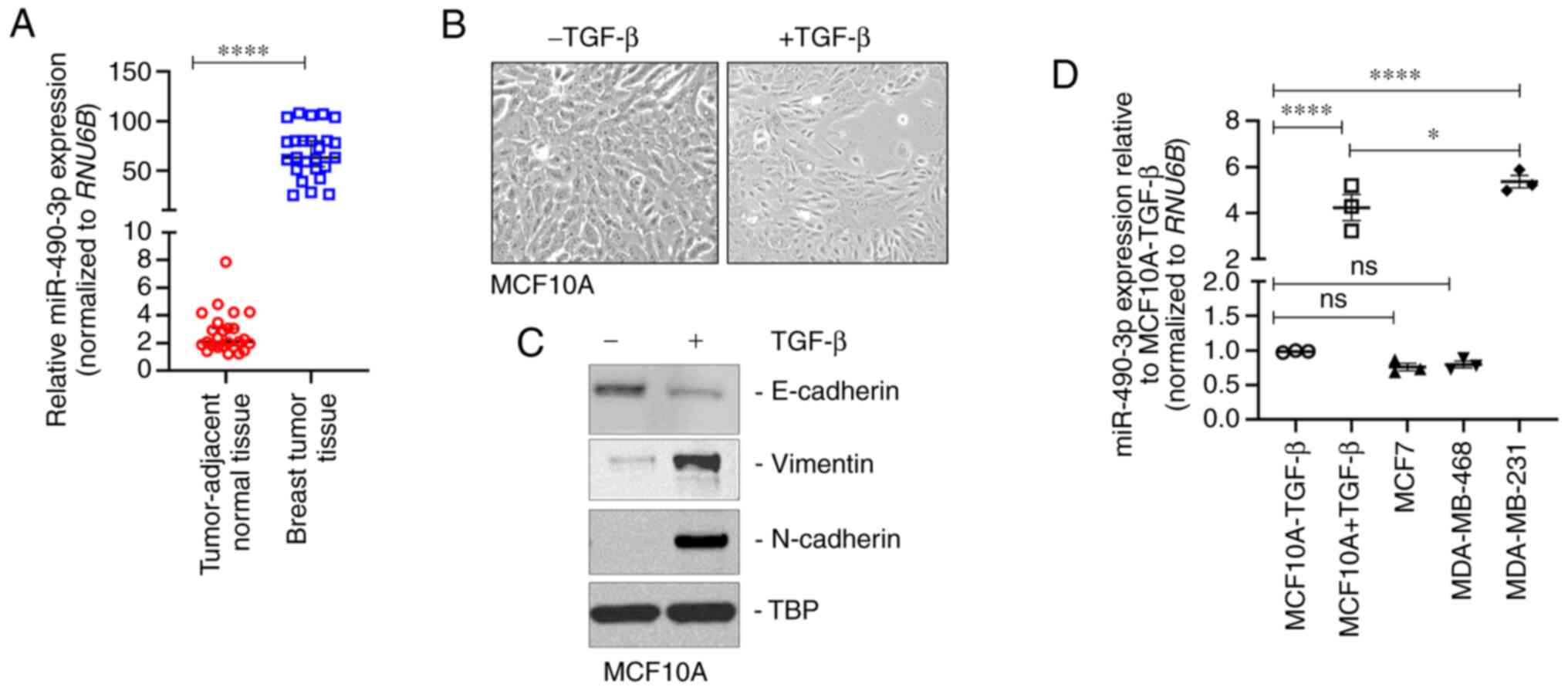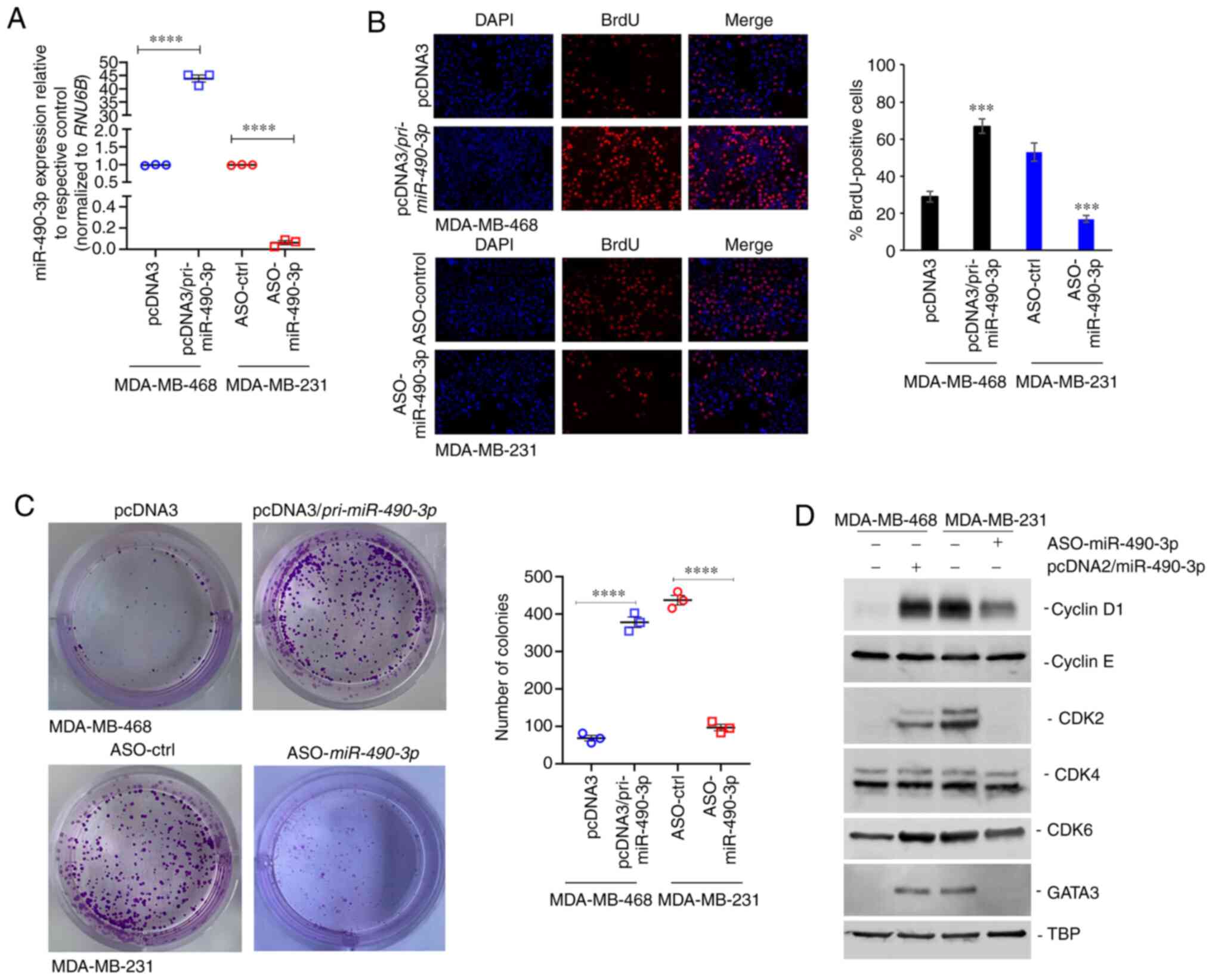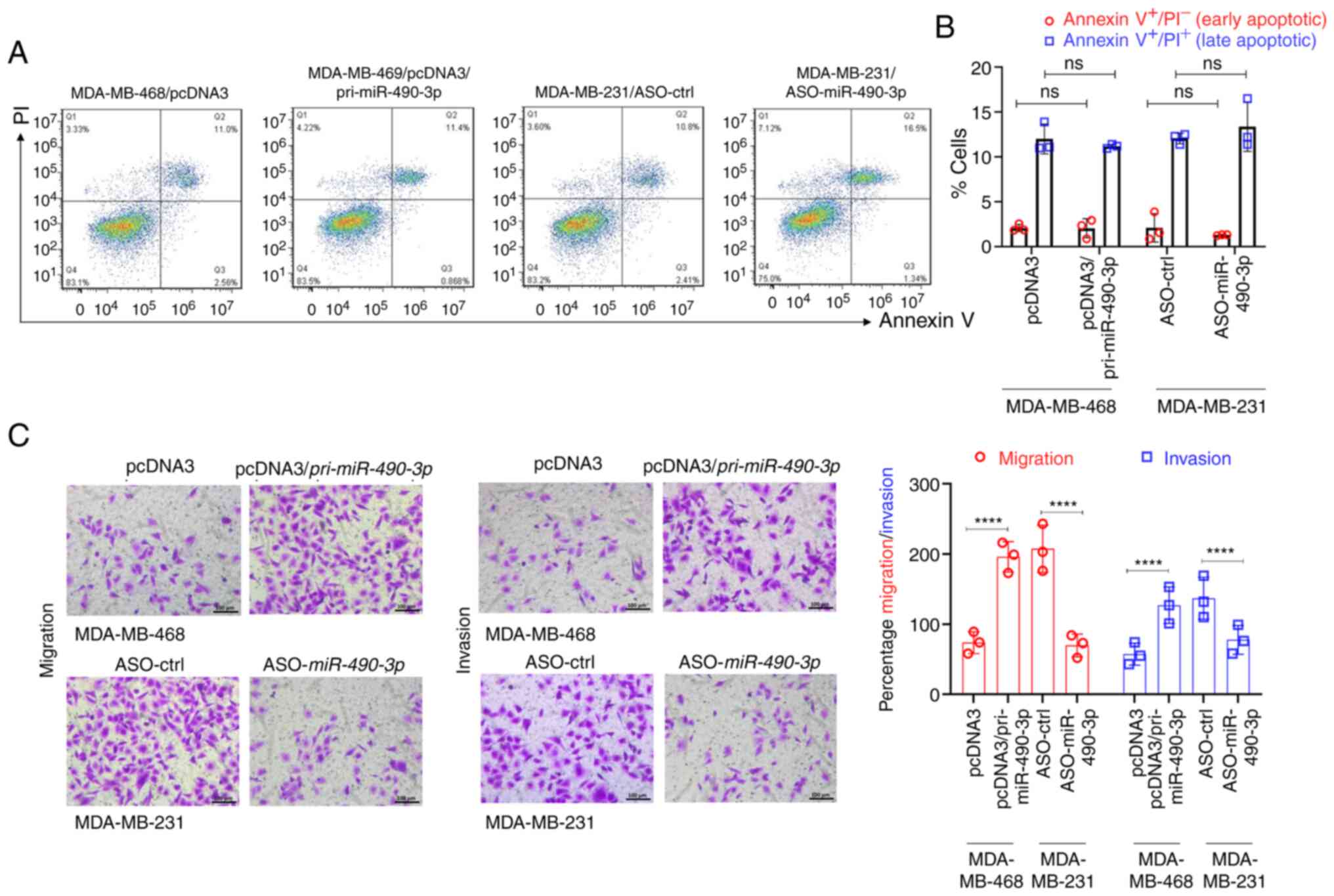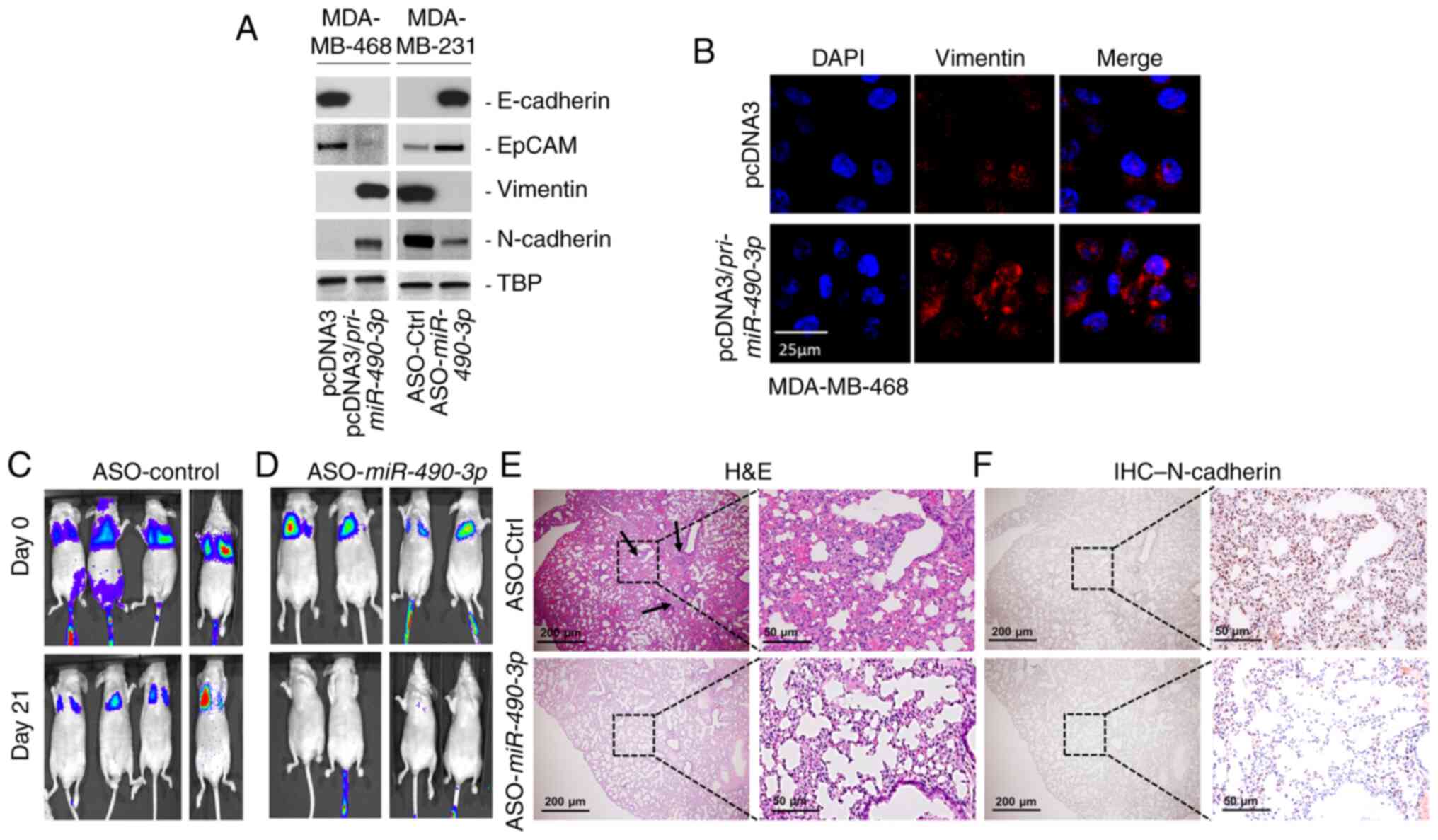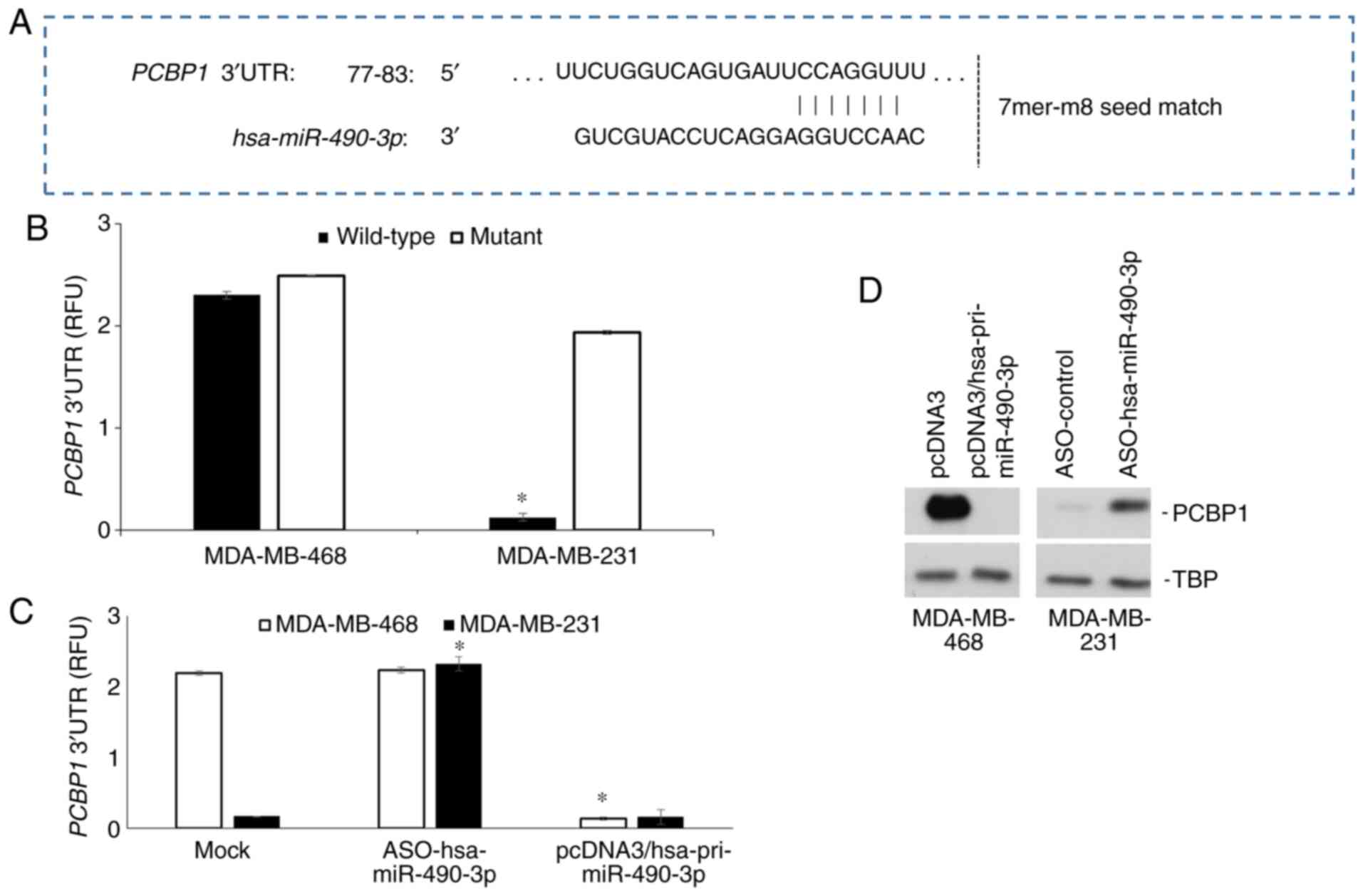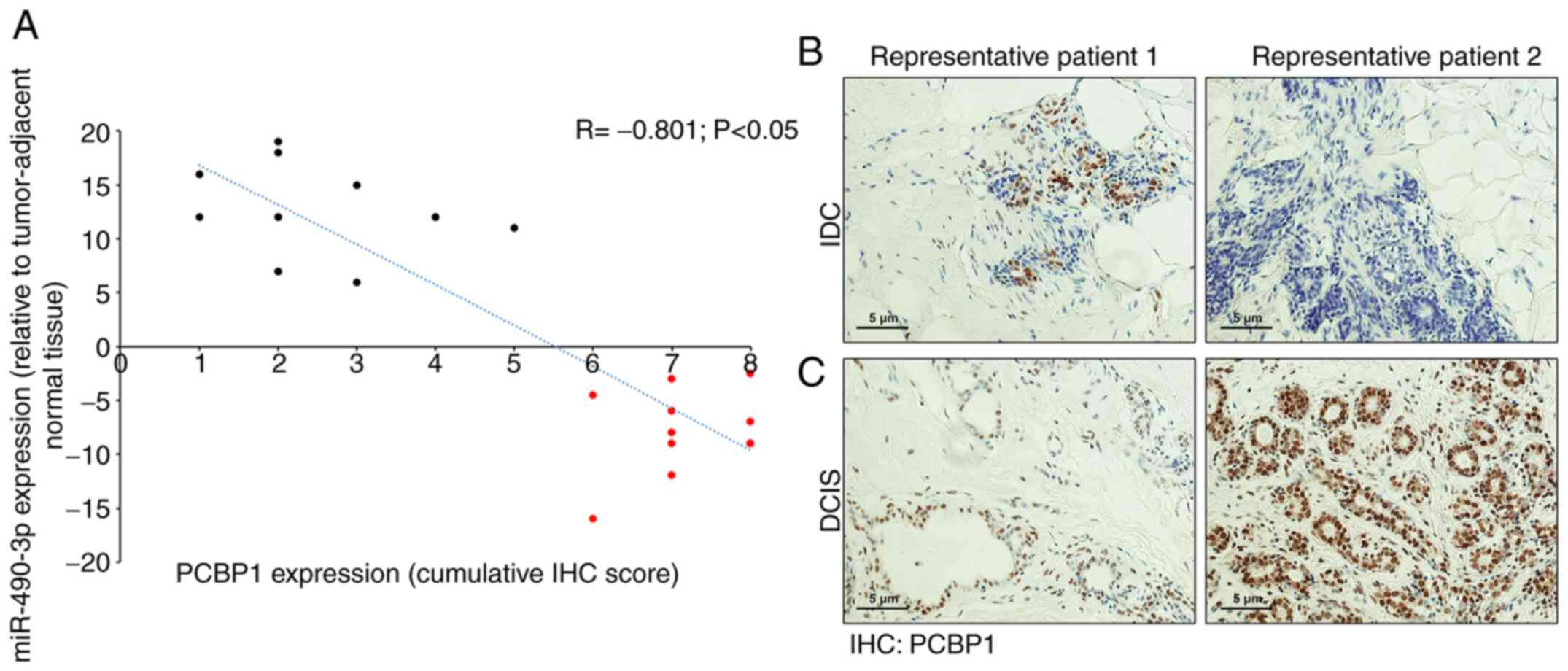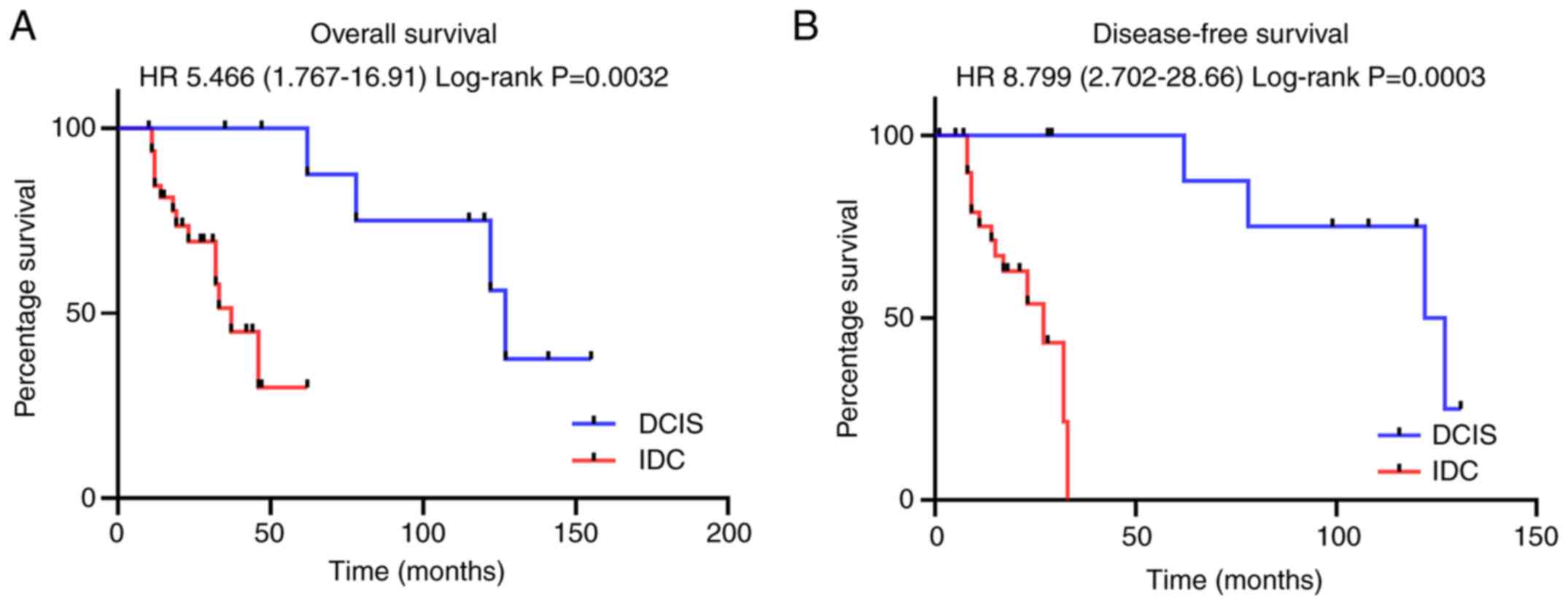|
1
|
Jemal A, Bray F, Center MM, Ferlay J, Ward
E and Forman D: Global cancer statistics. CA Cancer J Clin.
61:69–90. 2011. View Article : Google Scholar : PubMed/NCBI
|
|
2
|
Li J, Zhang BN, Fan JH, Pang Y, Zhang P,
Wang SL, Zheng S, Zhang B, Yang HJ, Xie XM, et al: A nation-wide
multicenter 10-year (1999–2008) retrospective clinical
epidemiological study of female breast cancer in China. BMC Cancer.
11:3642011. View Article : Google Scholar : PubMed/NCBI
|
|
3
|
Sporn MB: The war on cancer. Lancet.
347:1377–1381. 1996. View Article : Google Scholar : PubMed/NCBI
|
|
4
|
Early Breast Cancer Trialists'
Collaborative Group (EBCTCG), . Effects of chemotherapy and
hormonal therapy for early breast cancer on recurrence and 15-year
survival: An overview of the randomised trials. Lancet.
365:1687–1717. 2005. View Article : Google Scholar : PubMed/NCBI
|
|
5
|
Sayer HG, Kath R, Kliche KO and Höffken K:
Premenopausal breast cancer: Chemotherapy and endocrine therapy.
Drugs. 62:2025–2038. 2002. View Article : Google Scholar : PubMed/NCBI
|
|
6
|
de Bono JS, Tolcher AW and Rowinsky EK:
The future of cytotoxic therapy: Selective cytotoxicity based on
biology is the key. Breast Cancer Res. 5:154–159. 2003. View Article : Google Scholar : PubMed/NCBI
|
|
7
|
Hu S, Wilson KD, Ghosh Z, Wang Y, Lan F,
Ransohoff KJ, Burridge P and Wu JC: MicroRNA-302 increases
reprogramming efficiency via repression of NR2F2. Stem Cells.
31:259–268. 2013. View Article : Google Scholar : PubMed/NCBI
|
|
8
|
Card DA, Hebbar PB, Li L, Trotter KW,
Komatsu Y, Mishina Y and Archer TK: Oct4/Sox2-regulated miR-302
targets cyclin D1 in human embryonic stem cells. Mol Cell Biol.
28:6426–6438. 2008. View Article : Google Scholar : PubMed/NCBI
|
|
9
|
Liu X, He B, Xu T, Pan Y, Hu X, Chen X and
Wang S: MiR-490-3p functions as a tumor suppressor by inhibiting
oncogene VDAC1 expression in colorectal cancer. J Cancer.
9:1218–1230. 2018. View Article : Google Scholar : PubMed/NCBI
|
|
10
|
Chen K, Zeng J, Tang K, Xiao H, Hu J,
Huang C, Yao W, Yu G, Xiao W, Guan W, et al: miR-490-5p suppresses
tumour growth in renal cell carcinoma through targeting PIK3CA.
Biol Cell. 108:41–50. 2016. View Article : Google Scholar : PubMed/NCBI
|
|
11
|
Chen S, Chen X, Xiu YL, Sun KX and Zhao Y:
MicroRNA-490-3P targets CDK1 and inhibits ovarian epithelial
carcinoma tumorigenesis and progression. Cancer Lett. 362:122–130.
2015. View Article : Google Scholar : PubMed/NCBI
|
|
12
|
Lan G, Yang L, Xie X, Peng L and Wang Y:
MicroRNA-490-5p is a novel tumor suppressor targeting c-FOS in
human bladder cancer. Arch Med Sci. 11:561–569. 2015. View Article : Google Scholar : PubMed/NCBI
|
|
13
|
Li S, Xu X, Xu X, Hu Z, Wu J, Zhu Y, Chen
H, Mao Y, Lin Y, Luo J, et al: MicroRNA-490-5p inhibits
proliferation of bladder cancer by targeting c-Fos. Biochem Biophys
Res Commun. 441:976–981. 2013. View Article : Google Scholar : PubMed/NCBI
|
|
14
|
Zhang LY, Liu M, Li X and Tang H:
miR-490-3p modulates cell growth and epithelial to mesenchymal
transition of hepatocellular carcinoma cells by targeting
endoplasmic reticulum-Golgi intermediate compartment protein 3
(ERGIC3). J Biol Chem. 288:4035–4047. 2013. View Article : Google Scholar : PubMed/NCBI
|
|
15
|
Ou Y, He J and Liu Y: MiR-490-3p inhibits
autophagy via targeting ATG7 in hepatocellular carcinoma. IUBMB
Life. 70:468–478. 2018. View
Article : Google Scholar : PubMed/NCBI
|
|
16
|
Li J, Feng Q, Wei X and Yu Y: MicroRNA-490
regulates lung cancer metastasis by targeting poly r(C)-binding
protein 1. Tumour Biol. 37:15221–15228. 2016. View Article : Google Scholar : PubMed/NCBI
|
|
17
|
Gu H, Yang T, Fu S, Chen X, Guo L and Ni
Y: MicroRNA-490-3p inhibits proliferation of A549 lung cancer cells
by targeting CCND1. Biochem Biophys Res Commun. 444:104–108. 2014.
View Article : Google Scholar : PubMed/NCBI
|
|
18
|
Zhao L and Zheng XY: MicroRNA-490 inhibits
tumorigenesis and progression in breast cancer. Onco Targets Ther.
9:4505–4516. 2016. View Article : Google Scholar : PubMed/NCBI
|
|
19
|
Zientek-Targosz H, Kunnev D, Hawthorn L,
Venkov M, Matsui S, Cheney RT and Ionov Y: Transformation of
MCF-10A cells by random mutagenesis with frameshift mutagen ICR191:
A model for identifying candidate breast-tumor suppressors. Mol
Cancer. 7:512008. View Article : Google Scholar : PubMed/NCBI
|
|
20
|
Cailleau R, Olivé M and Cruciger QV:
Long-term human breast carcinoma cell lines of metastatic origin:
Preliminary characterization. In Vitro. 14:911–915. 1978.
View Article : Google Scholar : PubMed/NCBI
|
|
21
|
Brünner N, Boysen B, Rømer J and
Spang-Thomsen M: The nude mouse as an in vivo model for human
breast cancer invasion and metastasis. Breast Cancer Res Treat.
24:257–264. 1993. View Article : Google Scholar : PubMed/NCBI
|
|
22
|
Livak KJ and Schmittgen TD: Analysis of
relative gene expression data using real-time quantitative PCR and
the 2(-Delta Delta C(T)) method. Methods. 25:402–408. 2001.
View Article : Google Scholar : PubMed/NCBI
|
|
23
|
Chaudhury A, Hussey GS, Ray PS, Jin G, Fox
PL and Howe PH: TGF-beta-mediated phosphorylation of hnRNP E1
induces EMT via transcript-selective translational induction of
Dab2 and ILEI. Nat Cell Biol. 12:286–293. 2010. View Article : Google Scholar : PubMed/NCBI
|
|
24
|
Hussey GS, Chaudhury A, Dawson AE, Lindner
DJ, Knudsen CR, Wilce MC, Merrick WC and Howe PH: Identification of
an mRNP complex regulating tumorigenesis at the translational
elongation step. Mol Cell. 41:419–431. 2011. View Article : Google Scholar : PubMed/NCBI
|
|
25
|
Gao J, Aksoy BA, Dogrusoz U, Dresdner G,
Gross B, Sumer SO, Sun Y, Jacobsen A, Sinha R, Larsson E, et al:
Integrative analysis of complex cancer genomics and clinical
profiles using the cBioPortal. Sci Signal. 6:pl12013. View Article : Google Scholar : PubMed/NCBI
|
|
26
|
Unberath P, Knell C, Prokosch HU and
Christoph J: Developing new analysis functions for a translational
research platform: Extending the cbioportal for cancer genomics.
Stud Health Technol Inform. 258:46–50. 2019.PubMed/NCBI
|
|
27
|
Pastushenko I and Blanpain C: EMT
transition states during tumor progression and metastasis. Trends
Cell Biol. 29:212–226. 2019. View Article : Google Scholar : PubMed/NCBI
|
|
28
|
Wu HT, Zhong HT, Li GW, Shen JX, Ye QQ,
Zhang ML and Liu J: Oncogenic functions of the EMT-related
transcription factor ZEB1 in breast cancer. J Transl Med.
18:512020. View Article : Google Scholar : PubMed/NCBI
|
|
29
|
Enerly E, Steinfeld I, Kleivi K, Leivonen
SK, Aure MR, Russnes HG, Rønneberg JA, Johnsen H, Navon R, Rødland
E, et al: miRNA-mRNA integrated analysis reveals roles for miRNAs
in primary breast tumors. PLoS One. 6:e169152011. View Article : Google Scholar : PubMed/NCBI
|
|
30
|
Zhang ZZ, Shen ZY, Shen YY, Zhao EH, Wang
M, Wang CJ, Cao H and Xu J: HOTAIR long noncoding RNA promotes
gastric cancer metastasis through suppression of poly r(C)-binding
protein (PCBP) 1. Mol Cancer Ther. 14:1162–1170. 2015. View Article : Google Scholar : PubMed/NCBI
|
|
31
|
Zhang HY and Dou KF: PCBP1 is an important
mediator of TGF-β-induced epithelial to mesenchymal transition in
gall bladder cancer cell line GBC-SD. Mol Biol Rep. 41:5519–5524.
2014. View Article : Google Scholar : PubMed/NCBI
|
|
32
|
Xue X, Wang X, Liu Y, Teng G, Wang Y, Zang
X, Wang K, Zhang J, Xu Y, Wang J and Pan L: SchA-p85-FAK complex
dictates isoform-specific activation of Akt2 and subsequent
PCBP1-mediated post-transcriptional regulation of TGFβ-mediated
epithelial to mesenchymal transition in human lung cancer cell line
A549. Tumour Biol. 35:7853–7859. 2014. View Article : Google Scholar : PubMed/NCBI
|
|
33
|
Ghanem LR, Chatterji P and Liebhaber SA:
Specific enrichment of the RNA-binding proteins PCBP1 and PCBP2 in
chief cells of the murine gastric mucosa. Gene Expr Patterns.
14:78–87. 2014. View Article : Google Scholar : PubMed/NCBI
|
|
34
|
Song Q, Sheng W, Zhang X, Jiao S and Li F:
ILEI drives epithelial to mesenchymal transition and metastatic
progression in the lung cancer cell line A549. Tumour Biol.
35:1377–1382. 2014. View Article : Google Scholar : PubMed/NCBI
|
|
35
|
Cho SJ, Jung YS and Chen X: Poly
(C)-binding protein 1 regulates p63 expression through mRNA
stability. PLoS One. 8:e717242013. View Article : Google Scholar : PubMed/NCBI
|
|
36
|
Shi Z, Zhang T, Long W, Wang X, Zhang X,
Ling X and Ding H: Down-regulation of poly(rC)-binding protein 1
correlates with the malignant transformation of hydatidiform moles.
Int J Gynecol Cancer. 22:1125–1129. 2012. View Article : Google Scholar : PubMed/NCBI
|
|
37
|
Lian WX, Yin RH, Kong XZ, Zhang T, Huang
XH, Zheng WW, Yang Y, Zhan YQ, Xu WX, Yu M, et al: THAP11, a novel
binding protein of PCBP1, negatively regulates CD44 alternative
splicing and cell invasion in a human hepatoma cell line. FEBS
Lett. 586:1431–1438. 2012. View Article : Google Scholar : PubMed/NCBI
|
|
38
|
Wang H, Vardy LA, Tan CP, Loo JM, Guo K,
Li J, Lim SG, Zhou J, Chng WJ, Ng SB, et al: PCBP1 suppresses the
translation of metastasis-associated PRL-3 phosphatase. Cancer
Cell. 18:52–62. 2010. View Article : Google Scholar : PubMed/NCBI
|
|
39
|
Scimeca M, Urbano N, Bonfiglio R, Duggento
A, Toschi N, Schillaci O and Bonanno E: Novel insights into breast
cancer progression and metastasis: A multidisciplinary opportunity
to transition from biology to clinical oncology. Biochim Biophys
Acta Rev Cancer. 1872:138–148. 2019. View Article : Google Scholar : PubMed/NCBI
|















